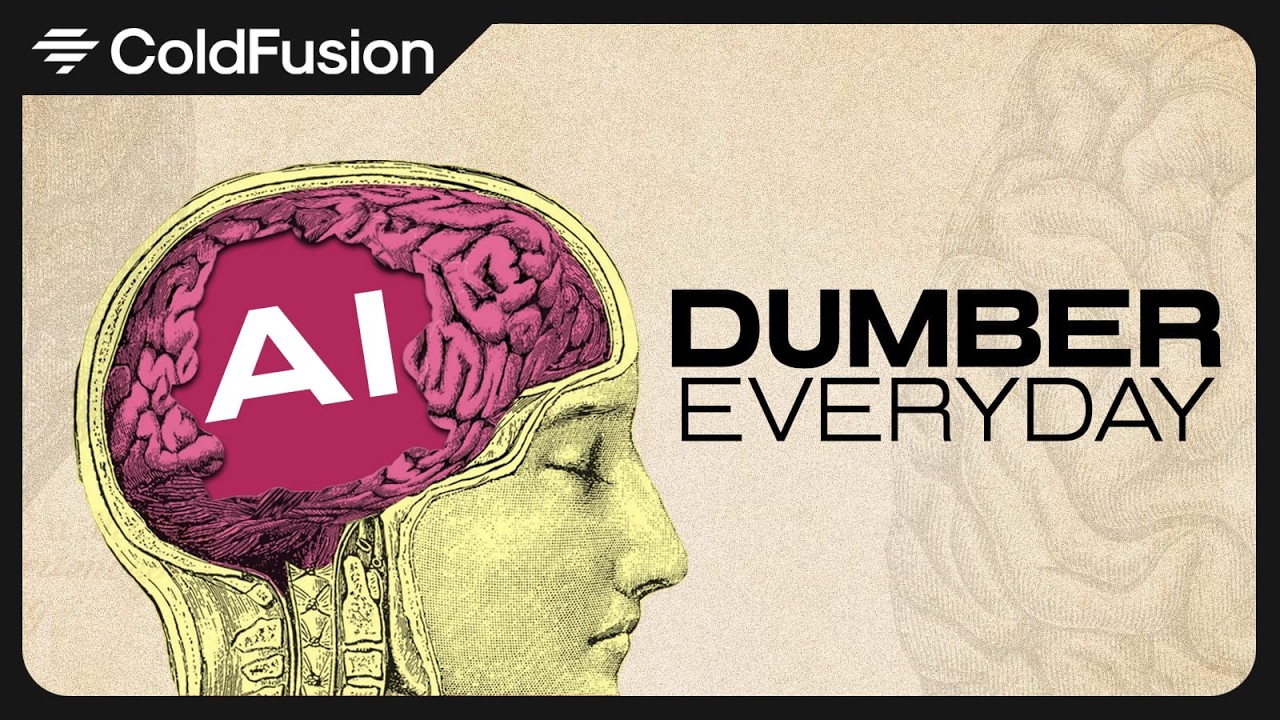The video warns that overreliance on AI may be diminishing human critical thinking and cognitive skills, as people increasingly depend on automation for everyday tasks and decision-making. It emphasizes the importance of using AI responsibly as a tool to enhance productivity without sacrificing essential mental abilities, highlighting concerns about misinformation, model reliability, and societal impacts.
The video from Cold Fusion explores the idea that AI might be making humans dumber by increasingly replacing critical thinking and cognitive effort with automation. It presents a future scenario set in 2035, where AI dominates daily life, from office work and entertainment to education and law enforcement. The host emphasizes how AI tools are integrated into almost every aspect of society, raising concerns about overreliance and the potential erosion of human mental skills, especially as people become accustomed to prompt-based solutions that require little to no independent thought.
The episode discusses the natural human tendency to adapt to technology, citing examples like GPS and AI in education, which can weaken essential skills such as spatial memory and writing ability. It highlights studies showing that overuse of AI and external tools leads to cognitive offloading—where individuals rely on technology to solve problems and make decisions—resulting in diminished critical thinking and mental resilience. The host warns that this dependency could have serious societal consequences, including flawed law enforcement decisions and a general decline in problem-solving capabilities.
A significant concern raised is the quality and reliability of AI-generated information. The video points out that current AI models often produce hallucinations, inaccuracies, and biased outputs, which can be mistaken for facts and spread misinformation. The phenomenon of model collapse, where AI degrades its own data over time, is explained as a dangerous cycle that could lead to the internet being flooded with increasingly unreliable content. This erosion of trustworthy information threatens the foundation of knowledge and decision-making in society, making it crucial to understand AI’s limitations.
The host emphasizes that AI should be viewed as a tool to assist rather than replace human cognition. Drawing parallels with early computer automation like spreadsheets, the episode advocates for responsible use of AI—using it as a companion to enhance productivity without surrendering critical thinking skills. It warns against the complacency of trusting AI blindly, especially as younger generations grow up relying heavily on these systems, which could lead to a loss of nuanced understanding and the ability to evaluate information independently.
In conclusion, the video advocates for a balanced approach to AI, recognizing its potential benefits while cautioning against overdependence. It stresses the importance of maintaining human cognitive abilities, such as critical thinking and understanding complex problems, which are essential for authentic human experience and societal progress. The host urges viewers to value their mental faculties and use AI responsibly, ensuring that technology remains a helpful tool rather than a crutch that diminishes human intelligence.
